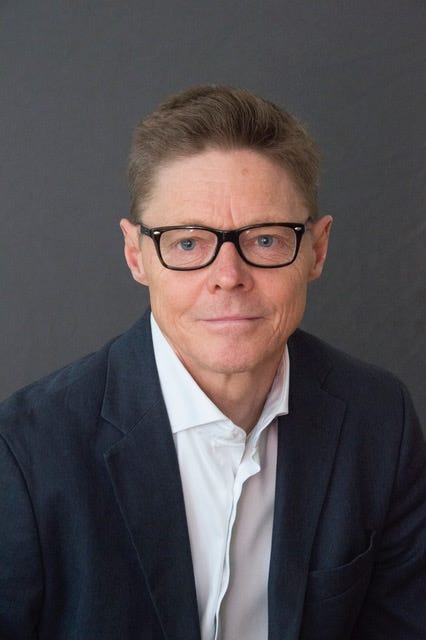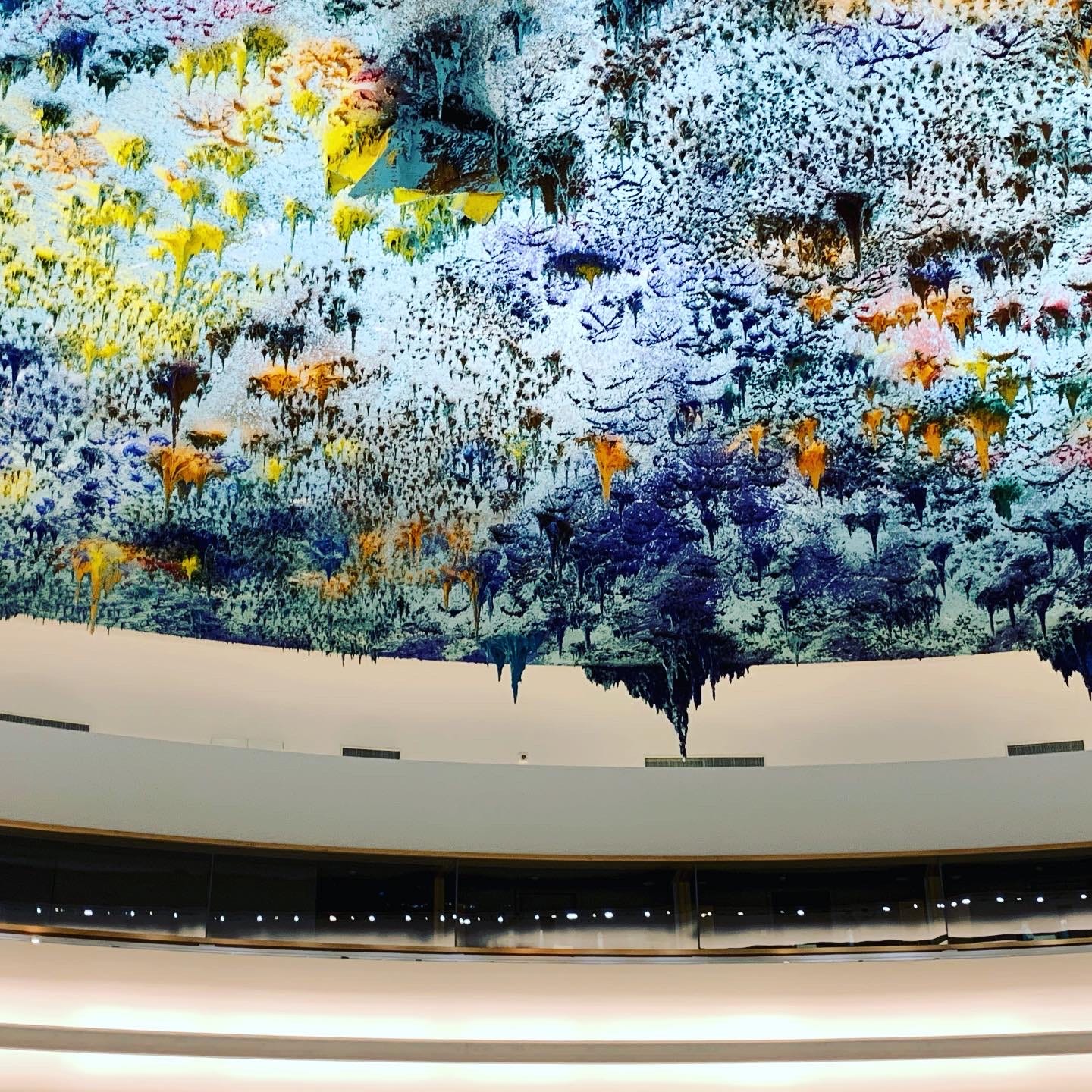The UN Brief starts this year’s series of interviews with UN Human Rights Council recently appointed Special Rapporteur on Extrajudicial, Summary, or Arbitrary Executions, Dr. Morris Tidball-Binz.
He spoke at length on issues of innovation in forensic anthropology to support the investigation of extrajudicial and arbitrary executions, the Minnesota Protocol, his work with the ICRC, the Granmothers of the Plaza de Mayo, the importance of implementing the rule-of-law to prevent the egregious violations of international human rights law, and promoting — to the wider public — the many UN treaties and conventions for the protection and promotion of human rights, such as the International Covenant on Political and Civil Rights.
He will present his first report in 2023 at the UN Human Rights Council in Geneva, and at the UN General Assembly this coming September, a report on the history of the mandate and its future. The Special Rapporteur for Extrajudicial, Summary, and Arbitrary Executions post was created 40 years ago.
Watch:
See also his bio. He has greatly contributed to the forensic anthropology field and his work was seminal to the development of forensic science for identifying victims of arbitrary executions and enforced disappearances in 70 countries.
Source: ICRC and UN HRC
Dr. Binz is a physician who specialises in forensic science, human rights and humanitarian action. His work contributed to the development and use of forensic science for the protection of human rights and assisting humanitarian action.
He has conducted fact-finding, technical assessment and capacity building missions in over 70 counties and contributed to international standard setting. He played a central role in developing the forensic activities of the International Committee of the Red Cross (ICRC) and the novel discipline of humanitarian forensic action.
He helped establish and served as the first director of the ICRC Forensic Services and Unit and, in 2017, led the complex forensic operation to identify 122 Argentine soldiers in the Falkland Islands (Malvinas).
In June 2021 he was appointed UN Human Rights Council Special Rapporteur on Extra Judicial and Summary Executions, where he will investigate violations of human rights law with country visits, plus reports by human rights protection NGOs, individual complaints, and the collaboration and support of governments engaged with truth, reparations and reconciliation.
He also imparts his knowledge in the use of forensics for human rights violations’ investigations as an Adjunct Clinical Professor in Forensic Medicine with Monash University, Australia; a Visiting Professor with the Universities of Coimbra, Portugal and of Milan, Italy; and a member of the directorate of the University of Coimbra Centre for Research and Training in Forensic Science, Human Rights and Humanitarian Action.
Dr. Binz participated with the Grandmothers of Plaza de Mayo in Argentina in the creation of the first-ever genetic database to locate victims of enforced disappearances and their relatives. In 1984 he co-founded the Argentine Forensic Anthropology Team.
*See this short video explainer, with English subtitles, on the history of the Grandmothers of Plaza de Mayo.
The Argentine Forensic Anthropology Team is an organization dedicated primarily to the forensic search, recovery and identification of victims of armed violence and was its first director, from 1984 to 1990; served as technical advisor, from 1984 to 1989, for the Grand-Mothers of Plaza de Mayo (a non-governmental organization –NGO- of families of the disappeared in Argentina), for the establishment of a national genetic data-bank for the identification of missing children in Argentina.
On the history of the EEAF check this video;
He was Researcher for Chile, Mexico, Venezuela and Central America at the Americas Department of Amnesty International's International Secretariat in London, UK (1990-1995) and then Head of that Department (1996-1997).
He directed the Regional Programme for the Prevention of Torture of the Inter-American Institute for Human Rights in Costa Rica (1998-1999); founded and was first director of the Latin-America Regional Office of Penal Reform International (NGO), also in Costa Rica (2000-2001); directed the Human Rights Defenders Office of the International Service for Human Rights (NGO), Geneva, Switzerland (2001-2003) and also directed that organisation during 2003, before joining the ICRC in 2004.
He has carried out forensic case-work applied to human rights and humanitarian investigations in over 70 countries in all regions and is actively involved in training and dissemination world-wide of applied forensic sciences.
His publications include manuals, articles and contributions in the fields of medical documentation of torture; monitoring prison conditions; forensic investigations into the missing and the management of human remains in armed conflicts and catastrophes.
He is a member of the Presidium and Scientific Committee of the International Academy of Legal Medicine (IALM); a member of the Advisory Board of Cameron Forensic Medical Sciences, University of London; of Board Member of the Academy of Forensic Medical Sciences (AFMS) and a Board Member of the US Scientific Working Group on Disaster Victim Identification (SWGDVI) and is an associate member of the American Academy of Forensic Sciences (Forensic Anthropology Section), as well as an International Consulting Editor of "Medicine, Science and the Law" and of the "Revista Española de Medicina Legal".
From 2018 until 2020 he was Forensic Manager of the ICRC’s Missing Persons Project. Dr. Tidbal-Binz is the recipient of two Honoris Causa Doctorates for his contribution to forensic science applied to human rights and humanitarian action.
Human Rights Council Universal Periodic Review Starts
The Human Rights Council’s Universal Periodic Review (UPR), is being held in Geneva from the 24th January to the 3rd of February. This is the mechanism by which countries are held accountable on their obligations to protect and promote human rights, and governments, judges, lawyers, and policy makers receive recommendations to update their skills to comply with international human right law frameworks.
Twelve countries are scheduled to have their human rights records examined in this third cycle. This is of historical relevance as with the completion of this session, the third cycle of the UPR, all 193 UN member States will have had their human rights records reviewed.
Countries reviewed in this last session will be: Togo, the Syrian Arab Republic, Iceland, Venezuela the Bolivarian Republic of), Zimbabwe, Lithuania, Uganda, Timor Leste, Moldova (the Republic of), South Sudan, Haiti and Sudan.
On average, one hundred countries make recommendations to each nation being evaluated.
Countries are expected to show implementation and the efforts made to respect their human rights obligations and commitments as signatories of international human rights treaties, such as the International Covenant of Civil and Political Rights.
For the complete list of treaties that countries have obligations to, if they are signatories, check here.
“The documents on which the reviews are based are 1) national report - information provided by the State under review; 2) information contained in the reports of independent human rights experts and groups, known as the Special Procedures, human rights treaty bodies, and other UN entities; 3) information provided by other stakeholders including national human rights institutions, regional organizations and civil society groups.” UN HRC
Photo credit: Maya Plentz, The UN Brief, UN HRC Conference Room in Geneva
ODA: Conference on Disarmament Starts Again in Geneva
Watch my interview with Minister-Counsellor for Disarmament Affairs Mr. Kimmo Laukkanen, of the Permanent Mission of Finland to the United Nations Office in Geneva, on the Conference on Disarmament and the Convention on Conventional Weapons, last December.














